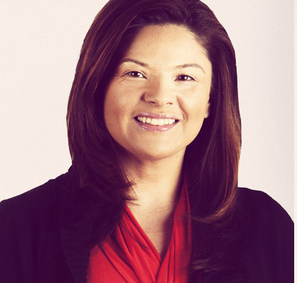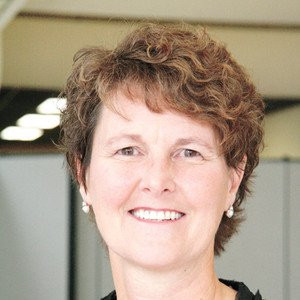Julia Steiny: Determined Parents Start a School for Atypical Kids
Wednesday, February 12, 2014
Dr. Amy Pratt looks me dead in the eye when she says, "The Greene Charter School would not exist if it weren't for me and the parents." Christa Andrews, another co-founding-Board member of Greene, looks a little exhausted from it all, but nods approvingly. Parent-created charter schools are a rare breed, and for good reason.
The school opened in 2010, in semi-rural West Greenwich, Rhode Island. But its conception took place easily 10, 12 years earlier. The Pratts, two veterinarians, run an animal hospital and clinic. Pet-owning clients often gathered at the table in the break room to chit chat, which often included sharing their frustrations with their children's schools. If only, they repeatedly mused together, if only they could start one of their own.
The universal complaint? The schools were maddeningly non-responsive. They didn't seem to care. Often they flat-out ignored parents' concerns. "No" came way too easily. For example, Pratt's son is deaf in one ear. While the condition has its complications, enhanced sound systems and staff accommodations to the deaf ear are neither expensive nor unreasonable. But somehow the solutions were always partial. The final straw was a middle school official forwarding Pratt a note from the administrators that said, "Tell the mother that that's what she gets." What? And if it's not enough or doesn't work? "That's what she gets?"
GET THE LATEST BREAKING NEWS HERE -- SIGN UP FOR GOLOCAL FREE DAILY EBLASTOther of the unhappy parents had special-needs issues, but many didn't. Some kids struggled academically or socially. Andrews' break-point was when her oldest son hit the wall of his middle schools' competitive, cliquey social scene. With four kids, she couldn't be battling every day just to get them to school. She searched for alternatives. There were none.
Interestingly, the private schools provided these women little relief. Pratt snatched her young son from one of the priciest schools in RI when she found that the administration never told the teachers about the deaf ear.
And Andrews says, "I went to private schools when I was young. I didn't want my kids in that (rarified) atmosphere. But I didn't want them bored or isolated either."
It was thus the charter-school movement itself was born.
In 1992, the first charter school opened in St. Paul, Minnesota, after a 1991 law made it possible to open schools relative free of the oppressive regulations that still make it hard for schools to be responsive to the kids in front of them. Now, about 4.6 percent of America's public-school kids attend charters. Charters aren't perfect, but they're more accountable to parents because if they're not responsive, they wither and die.
Not unreasonably, most charter laws mandate interested parents to partner with institutions or educators. But in practical fact, Greene is very unusual because few charters actually result from parent groups. Kids mature, move on; parents often do too. Starting a school from scratch is a monstrous task. Recently, "parent-trigger" laws help parents transform their regular public school into a charter, but these schools already have buildings, equipment, staff and infrastructure. And often parents bring in a Charter Management Organizations (CMO), like KIPP and Achievement First, because as educational franchisers, they're equipped with a business plan that quickly gets a school up-and-running. Parents get an alternative, but have no say in the planning.
It was love at first sight.
By the fall of 2007, Greene had the makings of a rag-tag Board, who'd been educating themselves about educational alternatives. The RI League of Charters and the state Department of Education were as supportive as they could be. The state had a temporary moratorium on opening new charters and zero money to help start-ups. Still, one fateful afternoon, hopeful parents and official allies gathered to hear folks give a pitch about Expeditionary Learning (EL). EL is an educational approach, not a CMO. They work with school communities to help them build educational responses to their needs.
When the pitch was done, no one moved or spoke. At last they looked at each other and for the first time said confidently, "We can do this."
I'll discuss Expeditionary Learning and this remarkable school in coming weeks, but for today the message is: Parents shouldn't have to work so hard to find school staff who "own" their kids.
Yes, some parents are unreasonably demanding. Many blame the school for their kids' lack of discipline. Public schools have no way to hold parents accountable for supporting their kids' education. Private schools just chuck such kids and parents out, further burdening the public system. Parents can be hard.
But they would be less hard if they had plenty of public choices.
By the time Greene finally opened in 2010, Pratt's son was finishing up at a private high school, which had been an onerous daily schleep for the Pratts. "Throughout it all, I retained a 10 percent illusion that this school would be for him." And it is, sort of. It's a living monument to him and to parents' powerful needs to spare such kids from battling to be heard and addressed. Parents and kids deserve better.
Julia Steiny is a freelance columnist whose work also regularly appears at EducationNews.org . She is the founding director of the Youth Restoration Project, a restorative-practices initiative, currently building demonstration projects in Rhode Island. She consults for schools and government initiatives, including regular work for The Providence Plan for whom she analyzes data. For more detail, see juliasteiny.com or contact her at [email protected] or c/o GoLocalProv, 44 Weybosset Street, Providence, RI 02903.
Related Slideshow: RI Experts on the Biggest Issues Facing Public Education
On Friday November 22, the Hassenfeld Institute for Public Leadership at Bryant University, the Latino Policy Institute of Roger Williams University, the Rhode Island Association of School Committees, the Providence Student Union, and RI-CAN: Rhode Island Campaign for Achievement Now will host Rhode Island leaders in the public and nonprofit sectors for a symposium on "the civil rights issue of the 21st century, adequacy and equity and the State of Education in Rhode Island."
Weighing in on the the "three biggest factors" facing education in the state today are symposium participatnts Gary Sasse, Founding Director of the Hassenfeld Institute for Leadership; Christine Lopes Metcalfe, Executive Director of RI-CAN; Anna Cano-Morales, Chairwoman of the Board of Trustees, Central Falls Public Schools and Director, Latino Policy Institute at Roger Williams University; Tim Duffy, Executive Director, RI Association of School Committees; and Deborah Cylke, Superintendent of Pawtucket Public Schools.
Related Articles
- Julia Steiny: Economy To Youth: Make Your Own Jobs
- Julia Steiny: Middle-school Puberty–The Elephant in the Classroom
- Julia Steiny: Giving Thanks for What’s Left of Childhood Magic
- Julia Steiny: Public Admits Being ‘Clueless’ About Education
- Julia Steiny: Common Core Standards Freak Out Chicken Littles
- Julia Steiny: High-Stakes Testing Works If Kids Go To School
- Julia Steiny: Recruiting Family Before Foster Care
- Julia Steiny: 2014 – When All Students Were Supposed To Be Equal
- Julia Steiny: If Only Congress Could Get A Divorce
- Julia Steiny: Stranded in the Land of Over-Stimulated Kids
- Julia Steiny: A Smart Way To Engage Math-Haters
- Julia Steiny: If the CCSS Are Not Our Common Vision, What Is?
- Julia Steiny: Bring Back The ‘C’ Grade
- Julia Steiny: In US Schools, Incorrect Answers Are ‘Un-American’
- Julia Steiny: Computer Science is Critical Thinking on Steroids
- Julia Steiny: It Takes Guts to Depict a Happy, Healthy Childhood
- Julia Steiny: Digital Badges Bust Out of School-Defined Learning
- Julia Steiny: It’s Building Kids’ Vocabulary, Stupid.














